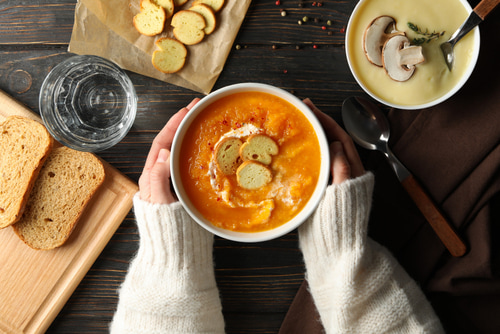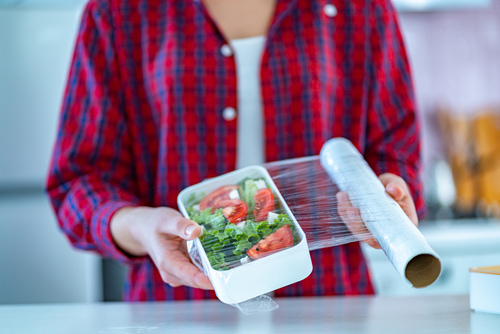Blog
How to reduce food waste in your home

Food waste is a global issue that affects both the environment and household economies. According to FAO data, one third of all food produced worldwide is lost or wasted, causing a significant impact on natural resources and greenhouse gas emissions. Fortunately, there are simple and practical steps we can take at home to reduce waste and make better use of our food. At KuokoKitchen, we share useful tips to help you contribute to a more responsible and sustainable consumption—right from your own kitchen.
Plan Your Shopping and Meals
One of the first steps to avoid food waste is to plan your shopping wisely. Before going to the supermarket, make a list of the items you truly need and check what you already have in your pantry and fridge. This way, you avoid overbuying food you won’t consume in time.
Additionally, planning your weekly meals helps you buy only what you need and better organize the ingredients you already have at home. If you know what dishes you’ll prepare each day, you can calculate the exact quantities and avoid wasting leftovers.
Store Food Properly
Proper storage extends the shelf life of food and prevents it from spoiling prematurely. This is where your kitchen tools play a key role. Airtight containers are ideal for storing leftovers or fresh products, as they keep out air and moisture, preserving flavor and texture.
You can also use reusable bags to freeze fruits, vegetables, or meats. Freezing is an excellent option for storing food you won’t eat right away, helping prevent spoilage.
Always remember to separate foods according to their type and storage needs, and use labels to write down the purchase or preparation date. This way, you can better keep track of what needs to be consumed first.
Get Creative with Leftovers
We often throw away leftovers simply because we lack ideas on how to reuse them. However, with a bit of creativity, you can turn leftovers into delicious and nutritious dishes. For example, chicken or meat bones can be used to make homemade broths for soups or stews.
Wilting vegetables can be added to omelets, purees, or stir-fries. Even overripe fruits can become the base for smoothies or homemade desserts. Keeping a special container for leftovers in the fridge will help you remember to reuse them.
Cook the Right Amount
A common mistake is cooking more food than needed, increasing the chance of leftovers that end up in the trash. To avoid this, calculate portions based on the number of people and their appetites. With practice, you’ll get better at adjusting quantities.
If there are leftovers, store them in individual containers for later consumption. This prevents spoilage and reduces the need to cook again from scratch, saving you time and energy.

Learn to Read Expiration Dates Correctly
Expiration labels on food can be confusing and lead to discarding products that are still good. It’s important to distinguish between the “best before” date and the “use by” date. The former indicates how long a product retains optimal quality, but it may still be safe to eat afterward if properly stored.
On the other hand, the “use by” date marks the limit for consuming a product safely. When in doubt, trust your senses: if a food smells fine and looks good, it’s probably safe to eat.
Use Tools that Help Preserve and Reuse Food
Investing in the right kitchen tools is a big help in reducing waste. For example:
- Airtight and glass containers: preserve food better, are easy to clean, and reusable.
- Reusable freezer bags: ideal for saving fruits and vegetables before they spoil.
- Stackable containers: optimize fridge space and help store leftovers neatly.
- Dehydrators: perfect for turning fruits and vegetables into healthy, long-lasting snacks.
- Mandolins and graters: great for making the most of fruits and vegetables, even parts often discarded like peels or stems.
Commit to Conscious Consumption
Reducing food waste is not only good for the planet, but it also positively impacts your wallet. Adopting mindful habits in the kitchen takes a bit of effort and planning, but the benefits are many.
Start gradually with the tips that best fit your routine and remember that every action counts. The kitchen can become a space where food is respected and given the value it deserves—keeping it out of the trash.
Reducing food waste is a commitment that improves quality of life and protects our environment. With planning, the right tools, and creativity, you can turn your home into a more sustainable and efficient space. Let’s get started!


